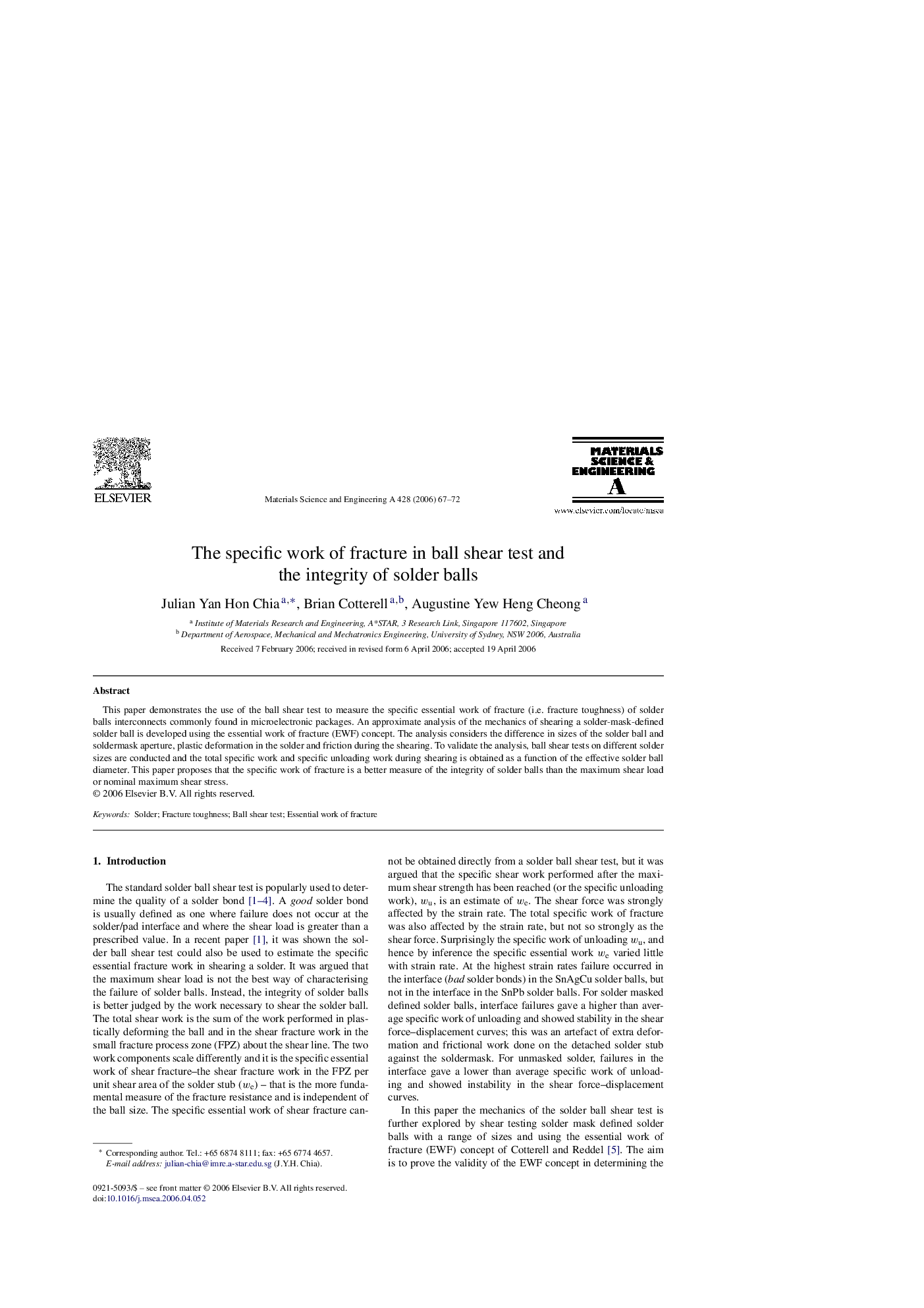| Article ID | Journal | Published Year | Pages | File Type |
|---|---|---|---|---|
| 1585528 | Materials Science and Engineering: A | 2006 | 6 Pages |
This paper demonstrates the use of the ball shear test to measure the specific essential work of fracture (i.e. fracture toughness) of solder balls interconnects commonly found in microelectronic packages. An approximate analysis of the mechanics of shearing a solder-mask-defined solder ball is developed using the essential work of fracture (EWF) concept. The analysis considers the difference in sizes of the solder ball and soldermask aperture, plastic deformation in the solder and friction during the shearing. To validate the analysis, ball shear tests on different solder sizes are conducted and the total specific work and specific unloading work during shearing is obtained as a function of the effective solder ball diameter. This paper proposes that the specific work of fracture is a better measure of the integrity of solder balls than the maximum shear load or nominal maximum shear stress.
